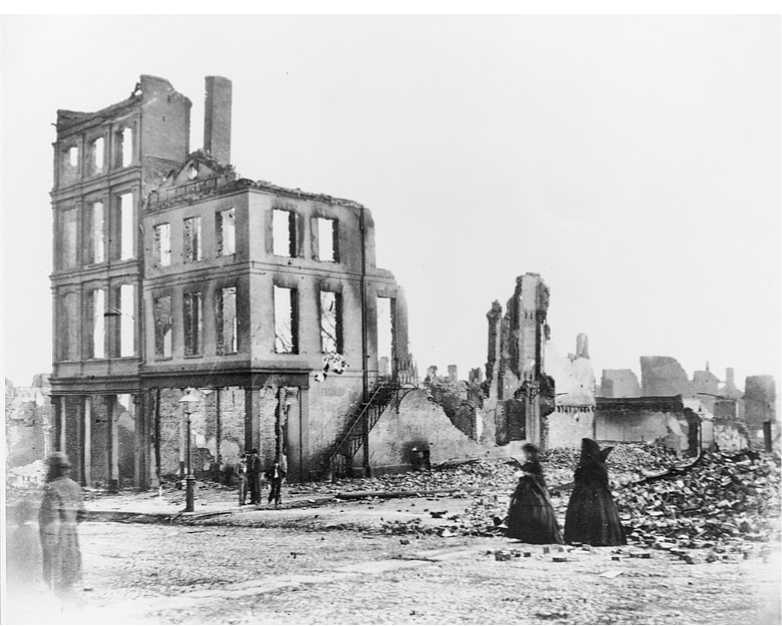On April 5, 1865, Abraham Lincoln visited
Richmond. The fallen capital lay in ruins, sections blackened by fire, but the president was able to walk the streets unmolested and almost unattended.
Everywhere African Americans crowded around him worshipfully; some fell to their knees as he passed, crying “Glory, Hallelujah,” hailing him as a messiah. Even white townspeople seemed to have accepted defeat without resentment.
A few days later, in Washington, Lincoln delivered an important speech on Reconstruction, urging compassion and open-mindedness. On April 14 he held a Cabinet meeting at which postwar readjustment was considered at length. That evening, while Lincoln was watching a performance of the play Our American Cousin at Ford’s Theater, an actor, John Wilkes Booth, slipped into his box and shot him in the back of the head with a small pistol. Early the next morning, without having regained consciousness, Lincoln died.
The murder was part of a complicated plot organized by die-hard Southerners. One of Booth’s accomplices went to the home of Secretary of State William Seward and stabbed him—Seward recovered from his wounds. A third conspirator, assigned to kill Vice President Andrew Johnson, changed his mind and fled Washington. Seldom have fanatics displayed so little understanding of their own

Richmond, Virginia lies in ruins in April, 1865 at the time of Lincoln's visit—and a few days before his assassination.
Interests, for with Lincoln perished the South’s best hope for a mild peace. After his body had been taken home to Illinois, the national mood hardened; apparently the awesome drama was still unfolding—retribution and a final humbling of the South were inevitable.




 World History
World History









